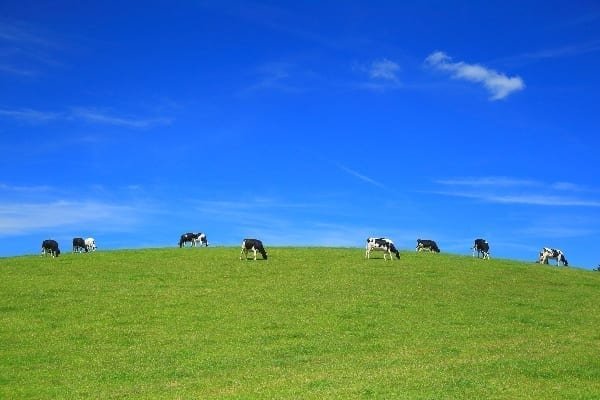Animals and soil health
Crucially, we need to eat less meat – but this doesn’t mean we should stop eating meat all together. Pasture-fed animals like cows and sheep have a critical role to play in sustainable ‘closed-loop’ farming because of the way they recycle nutrients into the earth through their manure, building soil health and fertility without chemical fertilisers.
What we can all do with less of, though, is intensively farmed meat. Keeping animals in overcrowded conditions where disease can spread has led to the overuse of antibiotics.
Fed on imported soy and grain, intensive production has contributed to deforestation in other parts of the world. The mantra of eating less, but better, meat is one that needs to be taken to heart if our diets are going to help, not hinder, the fight against climate change.
Organic September
Organic September, the annual month-long celebration of sustainable food and farming, will show how easy it is for all of us to make a positive change in the world through the food we eat, the clothes we wear and the beauty products we use.
Simply choosing organic whenever you can is a powerful form of direct action. Organic farmers work with nature to produce nutritionally different food, farm animals are always free range and routine use of antibiotics is avoided. Organic food is also free from controversial additives and GM.
Supporting change
Help support the organic movement by visiting an independent organic retailer or buying organic milk at the local supermarket. By choosing organic you are helping to improve the food system and supporting a wider movement of change, which is now right at the heart of real, workable, proven solutions to the biggest crisis facing all of us – now and in the future.
During Organic September, events will be taking place up and down the country in stores and online; new products will be launched and there will be lots of fresh, in-season products to try.
An Organic Discovery Guide will help food lovers discover more about organic, with myth busters to sort the facts from the fiction, hints and tips for going organic, recipes, competitions and more.
Don’t forget to show some love to your local independent retailer on Organic September Saturday, on 14 September. If everyone switched one product to organic, it would make a huge difference.
Click here to find out more about Organic September and how you can get involved.
 Play Video about This Rock Might Just Save The World
Play Video about This Rock Might Just Save The World Play Video about Play 2 hours of rock
Play Video about Play 2 hours of rock Play Video about Play 2 hours of brook
Play Video about Play 2 hours of brook Play Video about Play 2 hours of sheep
Play Video about Play 2 hours of sheep











































